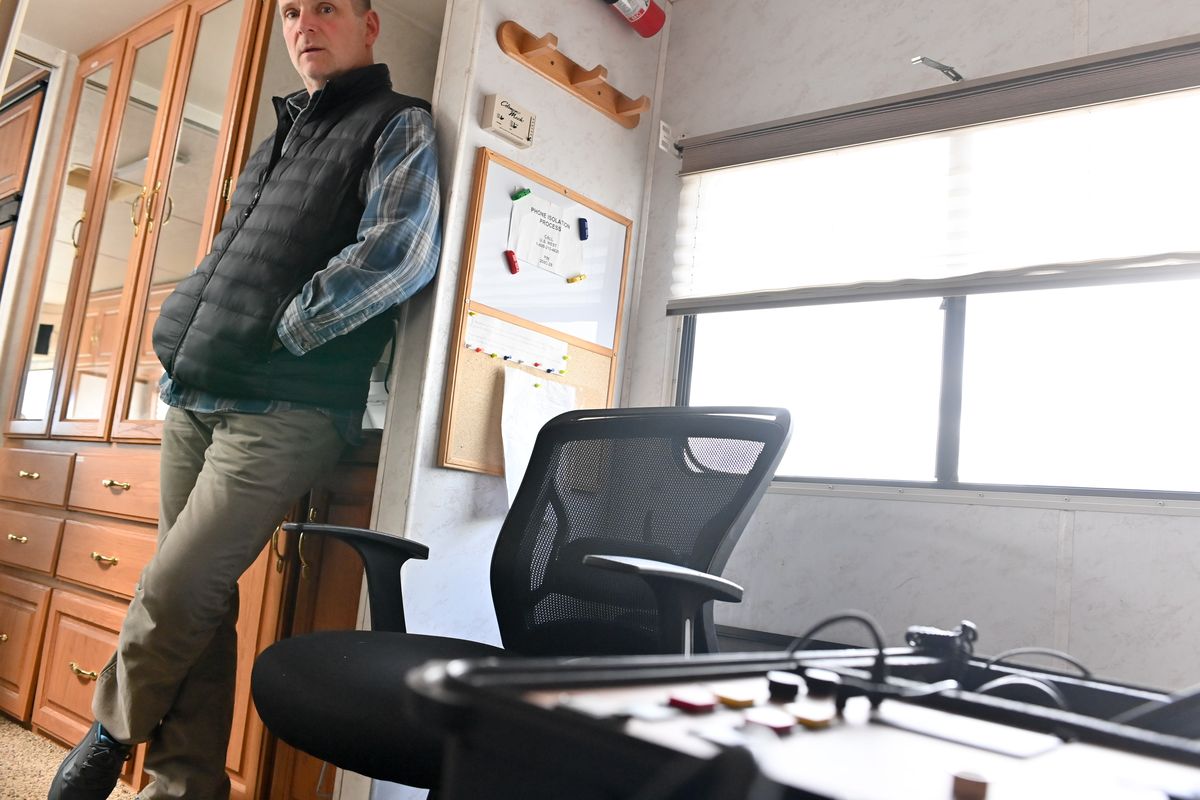SPD looking to buy new Hostage Negotiation Team vehicle to replace one damaged by mice, water

The Spokane Police Department uses a 1999 Infinity motor home that officers call the Crisis Communications Center.
Reportedly purchased more than 15 years ago, the motor home-turned-police asset is infested with mice and water damage. It has also served as the operations hub for the police department’s Hostage Negotiation Team, which – particularly this year – has seen more work than ever.
The Hostage Negotiation Team is used when attempting to diffuse certain critical situations, including those with people who are suicidal, barricaded or have taken hostages. As a team, members gather and verify information pertinent to the incident, such as whatever is imparted during a 911 call.
Aiming to improve the team’s functionality, the police department is in the market to get the Hostage Negotiations Team some new, and more specialized, wheels.
The police department is requesting approximately $448,760 from city lawmakers to purchase a brand-new Nomad Tactical Command Vehicle.
The Nomad has a soundproof room for negotiators, with enough space for four people, Lt. Dan Waters, commander of the Hostage Negotiations Team, told the Spokane City Council at a meeting earlier this month. Waters said other notable features include an open area with a wall-mounted television, a conference table with seating, wiring and Wi-Fi.
The City Council will consider voting to authorize the purchase Monday.
“The vehicle is the information hub,” Waters said. “When you walk into the Crisis (Communications) Center, it’s our goal that you have every piece of information that you need. It’s posted on the walls.”
When the department purchased the Infinity, officers gutted the bathroom to serve as equipment storage. Waters said calls involving primary negotiators are often done in a space that was once a bedroom. The only thing separating that space from the bathroom is an accordion partition.
With voice calls, Bluetooth speakers allow officers stationed in the Infinity’s main space to overhear calls with negotiators. That space includes a couch and two diner benches, with more seating provided by a foldable chair.
“As you can imagine, when you’re in a crisis situation, there’s a lot of noise. You have firefighters, you have ambulances, you have SWAT members, officers – whatever is going on, there’s a lot of chaos,” Waters said. “We need a place where we kind of isolate our negotiation team so that they can have a quiet space to work.”
Manufactured by the Montana-based Nomad GCS, the Nomad Tactical Command Vehicle is “the best that we could find” and “the lowest price,” Spokane police Maj. Michael McNab told the council earlier this month. The vehicle includes a 12-year warranty that also covers electronics and software updates.
Likewise, McNab said the police department and the city’s Fleet Services division also explored purchasing and retrofitting another motor home.
Waters said team members a couple years ago explored renovating the Infinity to meet their needs, finding it would need $80,000 to $100,000 in upgrades. There’s risk there, however, given the vehicle’s water damage, he said.
“I think the priority is functionality first and how this is going to work,” said McNab. “It doesn’t make a whole lot of sense to convert a passenger camping-type motor home into what they actually need.”
As of April 11, the Crisis Communications Vehicle had been used for 12 of the 33 incidents responded to by at least two members of the 14-member Hostage Negotiations Team, Waters said. Historically, the vehicle is used six to 10 times per year.
Similarly, Hostage Negotiation Team members were used around 50 times through all of last year. And as summer approaches, Waters said he expects that number to only go up.
“The hostage team has gone from going out on the very largest incidents to being a different model where they are at every incident now and they’re embedded with the SWAT team,” McNab said. “They’ve really become part of the solution for all these contiguous calls.”